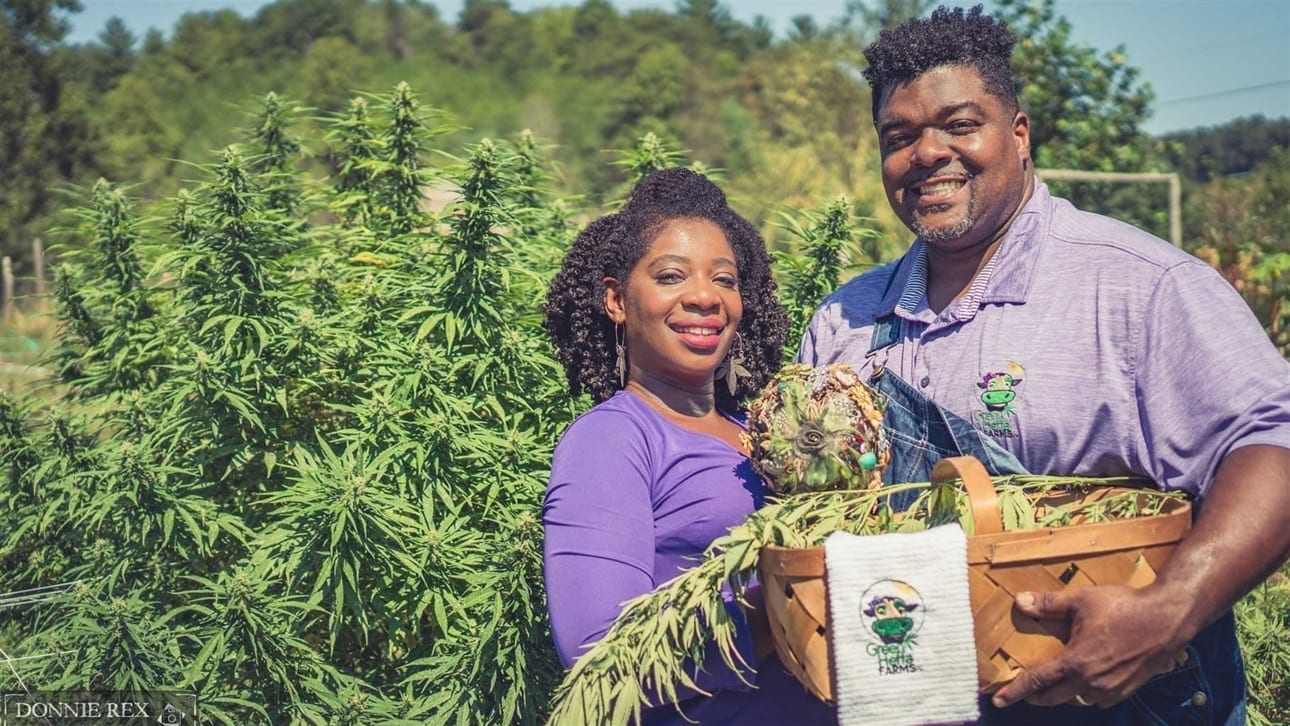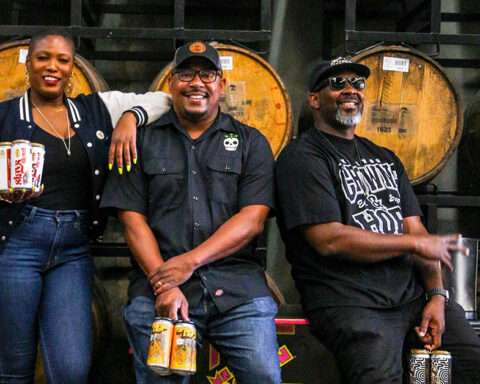Clarenda Stanley-Anderson is one of the few Black hemp farmers in the country. She and her husband, Malcom, own Green Heffa Farms and were the featured farmer of Hemp History Week, an educational campaign in June focused on a newly legal crop that’s at the center of a risky, potentially billion-dollar industry.
Stanley-Anderson is considered a pioneer in the nascent hemp agricultural community, for educating others and encouraging young farmers to bring hemp back to the U.S. agrarian landscape, according to history week organizers.
It’ll be the first time that the Hemp Industries Association annual initiative, which boasts celebrity endorsements and events across the country, will feature a nonwhite farmer.
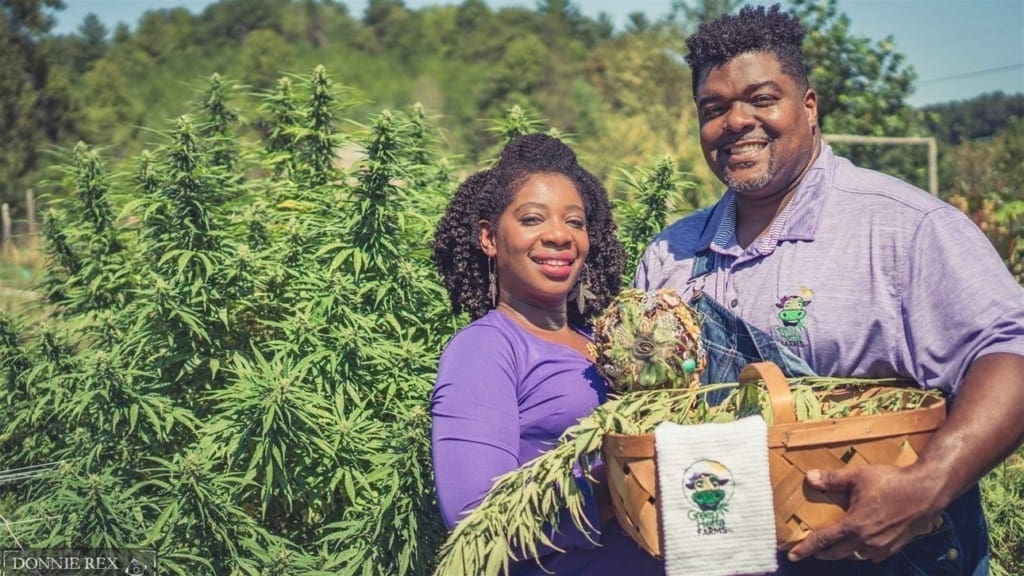
Stanley-Anderson wants to expand the representation of hemp farmers, even if she’s far from the average industry insider. Black farmers are a mere 1.4 percent of the country’s 3.2 million farmers, according to the 2012 U.S. Department of Agriculture Census of Agriculture. In North Carolina, where Stanley-Anderson and her husband own Green Heffa Farms in the town of Liberty, black farm operators are nearly 3 percent of farmers.
While black farmers aren’t as visible, Stanley-Anderson is part of a developing community. As growers, processors and entrepreneurs, black professionals across the country are working to carve out a space in a trendy industry that’s projected to reach $1.9 billion in U.S. hemp-based product sales by 2022, according to the Hemp Business Journal, an online publication that tracks the industry.
Individuals and organizations are in the early stages of building networks of black farmers and processors to ensure black agriculture professionals get their share of hemp riches. But it’s hard for everyone to take on the risk.
Black farmers have long been discriminated against by lending institutions like the USDA. And with a limited population of growers, land, resources and sometimes access to the information networks that enable farmers to move quickly, they could be left behind again with hemp.
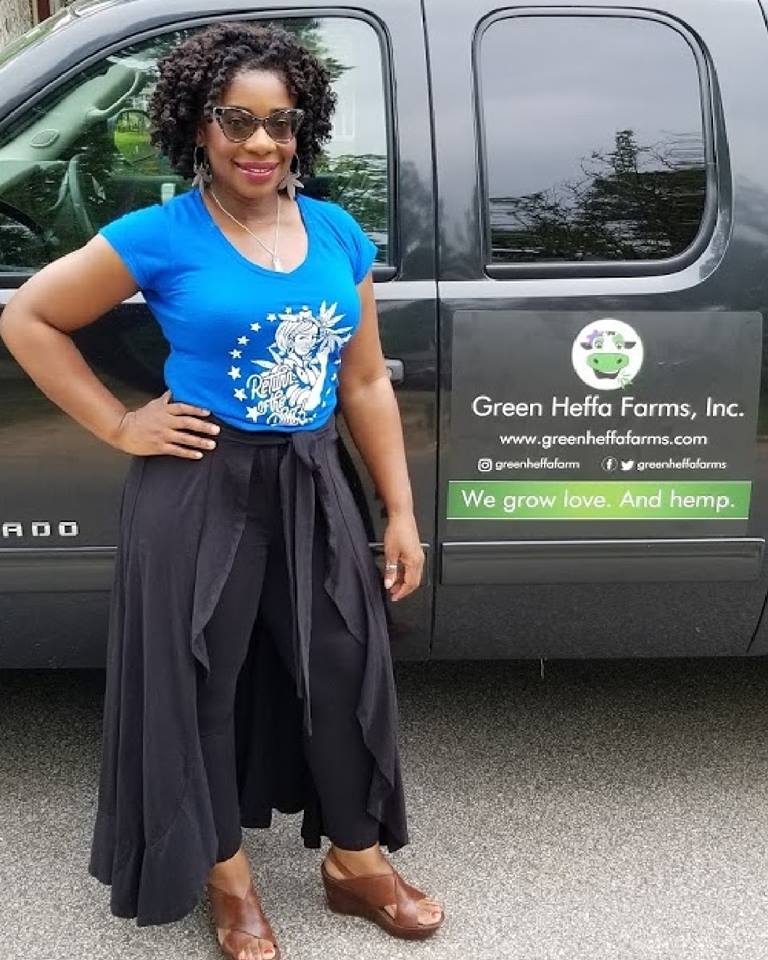
“Black farmers are becoming extinct,” said Lamar Wilson, founder of SunJoined, a nationwide network of hemp growers and processors with farmers in Kentucky, Kansas and Colorado. “This is an opportunity to bring them back and to actually provide a profitable resource, but also a resource that can be used for so many different things.”
Not everyone is optimistic hemp is the future for the small and under-resourced farmer, unless there are regulatory efforts to ensure they can be competitive.
“Most minority farms are on the verge of survival,” said Joe Trigg, a farmer and city council member in Glasgow, Kentucky, who’s running as a Democrat for state commissioner of agriculture. “The last thing they need is something else to drag them down.”
A Mixed Opportunity
Hemp has been touted by Democratic and Republican senators as a lifeline nationwide to farmers, many of whom are struggling under declining commodity prices. Farmers can harvest three types of hemp: fiber; grain or seed; or floral material extracted for plant resin, including cannabidiol, popularly known as CBD. Hemp’s uses span more than 25,000 products, including textiles, biofuel, ropes, cosmetics, food and beverages.
Agriculture professionals say the high-value crop can be particularly well-suited to black landowners, who typically have smaller farms and less overall sales than white farmers. Black farmland accounts for 0.4 percent of U.S. farmland, and sales account for 0.2 percent of total U.S. agriculture sales, according to the USDA. Hemp can be cultivated in tight spaces, especially when harvested for fiber and seed, which are planted in narrow rows.
“We’re just seeing black farmers emerge in the market,” said Bonita Money, founder of the Los Angeles-based National Diversity Inclusion and Cannabis Alliance, another group connecting hemp farmers of color.
Although hemp is legal, regulatory risks complicate the crop’s long-term outlook. Some states are positioning themselves to compete, but it’s unlikely the market can sustain hemp production in every state — unless there’s a significant increase in product demand, according to a February 2019 report from the College of Agriculture, Food and Environment at the University of Kentucky.
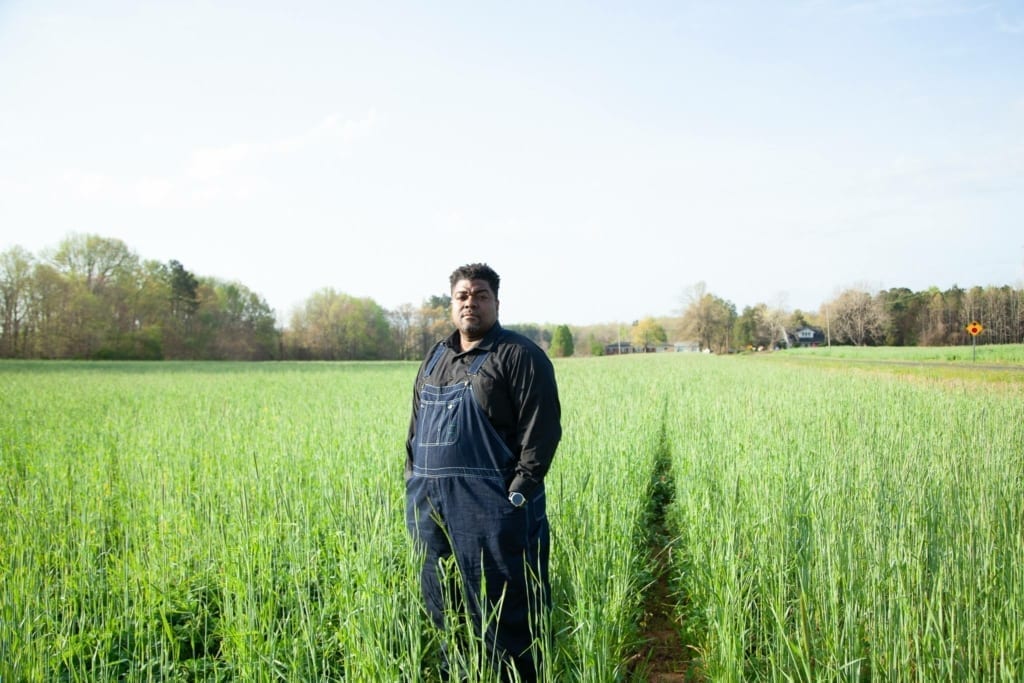
“Technology may dictate that production will ultimately be concentrated in relatively few states where hemp can be grown at the lowest cost of production and transported shorter distances for processing,” the report said.
Some states, including North Carolina and Kentucky, adopted hemp early and began growing it in research or pilot programs prior to Congress’ passage of the 2018 farm bill, which legalized hemp widely. Before December, when President Donald Trump signed the bill, federal law treated hemp as a quasi-controlled substance because of its relation to marijuana.
Neither Kentucky nor North Carolina tracks the race of growers or processors, according to spokespeople from the states’ departments of agriculture.
With federal legalization, many states are launching hemp pilot programs, transitioning from pilot to large-scale programs, while some are choosing to keep hemp farming illegal. Regardless, competition is increasing as growing hemp becomes more accessible.
Roscoe M. Moore, Jr., a former assistant U.S. surgeon general who attended a recent hemp workshop in Columbia, Maryland, thinks that as more money enters the hemp market, there will be few minorities involved. He pointed to the Maryland state law that called on regulators to reflect racial, ethnic and geographic diversity among those licensed to work in the medical marijuana industry. No black applicant was awarded a grower’s license, according to news reports, and there were no repercussions, Moore said.
“Business relationships are the gold standard for America,” said Moore, who advises several biotechnology and pharmaceutical companies. “Business is based on commerce. There’s not any excuse why we’re not involved, we just haven’t had the experience.”
But even when approached, black farmers sometimes decline the opportunity. Trigg, the Kentucky city council member, said a state official encouraged him to participate early in Kentucky’s pilot program. Trigg declined because of the crop’s association with marijuana and law enforcement oversight.
Even though marijuana and hemp are separate strains of cannabis, with hemp having a lower level of tetrahydrocannabinol, or THC — the main psychoactive component in the cannabis plant — farmers like Trigg worried about a stigma in being associated with the crop.
“There was still so much skepticism associated with it, and everyone was worried,” said Trigg, who plans to grow his first hemp plant this year. “You start growing marijuana on your farm and you’re black?”

